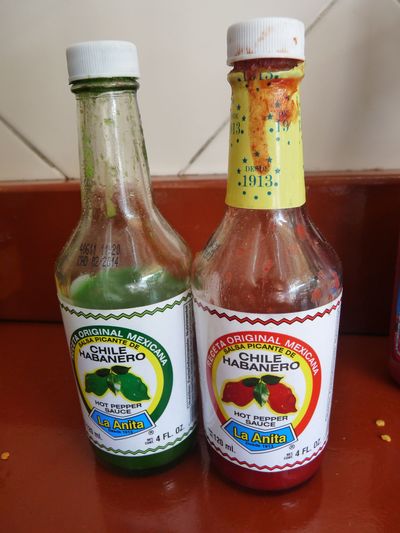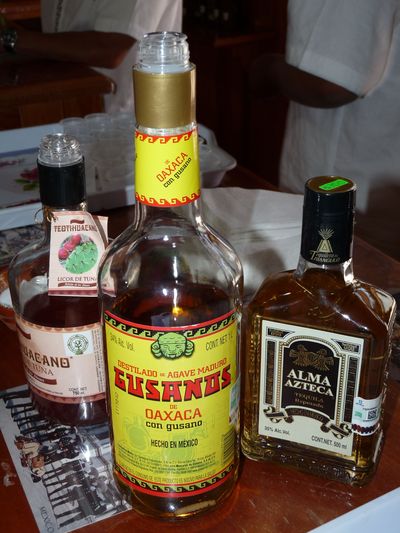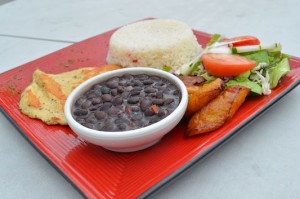Quick lesson of Mexican Spanish or 7 words (maybe) enough to get a girl to bed
I speak perfect Spanish. Having an M.A. in Spanish philology, I should. But the perfect Spanish from Spain. So after my first encounter with Mexico at the airport, I was shocked. I knew all the words people were saying, they were all Spanish, but the accent was so strange and so many words different. But after a week I even somehow changed my typical rough joder, tío accent into funny pinche wey.
And after 2 months being back in Europe, I still have kind of Mexican accent and not the Spanish one. I think I prefer it somehow now. Actually, the Mexicans have no accent. Together with the Colombian Spanish, they are both used for the translations of the movies being the 2 with the less accent possible out of all the varieties of Spanish from all over the world.
If you do not speak Spanish and you are planning to go to the country of tequila soon and have no time to learn, there are some basic words you should know to survive in Mexico (and have fun!)
- TEQUILA – of course this is the first and, for most of you, the most important word, too. You will need this word to get drunk as there will be not much to do if you are stupid enough to visit Mexico during the rainy season June – October. If not, you will need to use tequila anyway to get that tall sexy Swedish blondie to bed. Or there just will be no way to refuse to drink with the Mexicans and it’s usually good to know what you drink. Plus, you can finally go, see and learn how your favorite alcohol is made!
- SANITARIOS – baños in Spain, yes, now you probably got it, toilets/bathroom/restroom/washroom or however you call it. Once having tequila beating up your blood inside your body, the most useful word for you would be sanitarios. Wanna bet? If not to take a pee, then hold a friend’s head above the toilet when getting rid of tequila, or maybe just to finish that hot blondie as there are no beds any place close!
- PICANTE – all the salsas in Mexico are so spicy and many meals, too! Better to ask each time if the food/sauce are picante or not if you wanna still enjoy the yummy flavour of your meal and not run all red trying to remember how to say toilets in Mexican Spanish.

- GÜERA– girls, get ready to hear it all the time in Mexico. It means white (similar to rubia in Spain which is mostly referred to someone blond, while güera in Mexico is used to label every woman of white skin.) After a while the word was giving me the goosebumps each time I heard it with that long aaaaaaaaaaa in the end! And after my second month in Mexico I was even darker than half of the Mexicans (thanks to my obsession with beaches), so why the hell they were still calling me güera??? Do it again and I punch you!
- SABROSA – I say it in feminine as masculine form sabroso is almost never heard. Wondering why? I guess we, women, are not that disgusting when it comes to expressing our feelings/sexual needs! Sabrosa, literally meaning delicious, tasty or yummy in Spain, and is used in Mexico for hot women. Be happy when called sabrosa instead of güera, unless the guy shouting it to you is a 60-year-old Mexican with a 9-month-baby belly, who could, only on his tiptoes, get maximum to your tits! Seeing drool coming from his mouth when saying sabrosa to you would not be yummy at all! Bleee!
- SALE – while in Spain it is the 3rd person singular of leave/go out/get out, in Mexico it is used as Spanish vale in the meaning of ok/good/fine/I agree/got it.
- SE ME ANTOJA – in Spain tengo ganas de is typical Mexican for I feel like +ing, often used with food too.
Example: Se me antoja tequila picante … then point at the girl and say sanitarios … güera sabrosa!
Translation: I feel like having a spicy tequila and then to the bathroom with you, my sexy white girl!
(gramatically correct: Se me antoja una tequila picante y luego a los sanitarios contigo, mi güera sabrosa! But no worries, the body language, foreign charm and some basic Mexican words above would work out the same good, if not better than the grammar!)
If her answer would be sale, head off to the sanitarios before she makes up her mind!
Let me know if this quick lesson of Mexican Spanish helps you one day ;)




d.t.
| #
Mexicans have no accents? Are you kidding?
Mexicans along with Argentinians and Spaniards have the most easy to recognize accent or intonation. In general the accent is rustic and musical.
I learned Spanish from Spain and to me the Mexican accent sounds comical, similar to how parents speak with infants, for example, ‘ah, is that a boo boo?’
The word endings are elongated. When they get excited and start excelerating it sounds down right hilarious. Perhaps this is due to the strong indigenous influences.
Crazy Sexy Fun Traveler
| #
I disagree in the way that the Mexican ”accent” is super easy to understand, that’s what I meant. Not if it is recognizable, but easy to understand.
Crazy sexy fun traveler
| #
Comment@ Petra:
Si, mas formal sanitarios ;)
Petra
| #
Baños es mas común que sanitarios, lo que sucede es que en hoteles y restaurantes se usa Sanitarios, mas formal. Fuera de esos lugares todos decimos baños.
Crazy Sexy Fun Traveler via Facebook
| #
haha nice! I don’t drink vino tinto nor coffee so I would not have this problem :)
Tim Anderson via Facebook
| #
The other one that threw me off was “tinto” in Colombia. The first time I heard it was when I walked downstairs at my apartment with a cup of coffee and the security guard asked me if I was drinking tinto…I was only used to hearing tinto when describing “vino tinto”, and I answered noo, it’s only coffee…but then he explained to me that tinto WAS coffee. My first week there LOL
Crazy Sexy Fun Traveler via Facebook
| #
haha I do know the phrases you mention here and they made me laugh – great memories from my time in Mexico! Looking forward to say ”orita” soon in Mexico again :)
Tim Anderson via Facebook
| #
LOL mas o menos. Depende que parte de Mexico, tambien :) Pero es verdad hay mucho diferencia en el pronunciacion en los diferentes tipos de Espanol. Como Ingles (Australia, United States, England).
I found my time in Colombia to be quite amusing, as it is often mentioned (as you say in your article) as one of the “purest” forms of Spanish, but even then all of my Colombian friends knew that I had learned my Spanish in Mexico because I was using Mexican colloquialisms, which don’t exist down in Colombia.
For example, “Mande?” is used *a lot* here in Mexico as a slang for “What? I didn’t hear you”, whereas in Colombia they use the traditional “Como?” Another example would be “Orita”, which is the shortened form of “Ahorita”, or “right now”, which traditionally is only “ahora”, and in Colombia they almost never use “orita”, but only “ahora”.
Crazy Sexy Fun Traveler
| #
Comment@ Jeff @ Go Travelzing:
Cool she knew the differences! I love both Mexican Spanish and the one from Spain :) And this post was just a fun one ;)